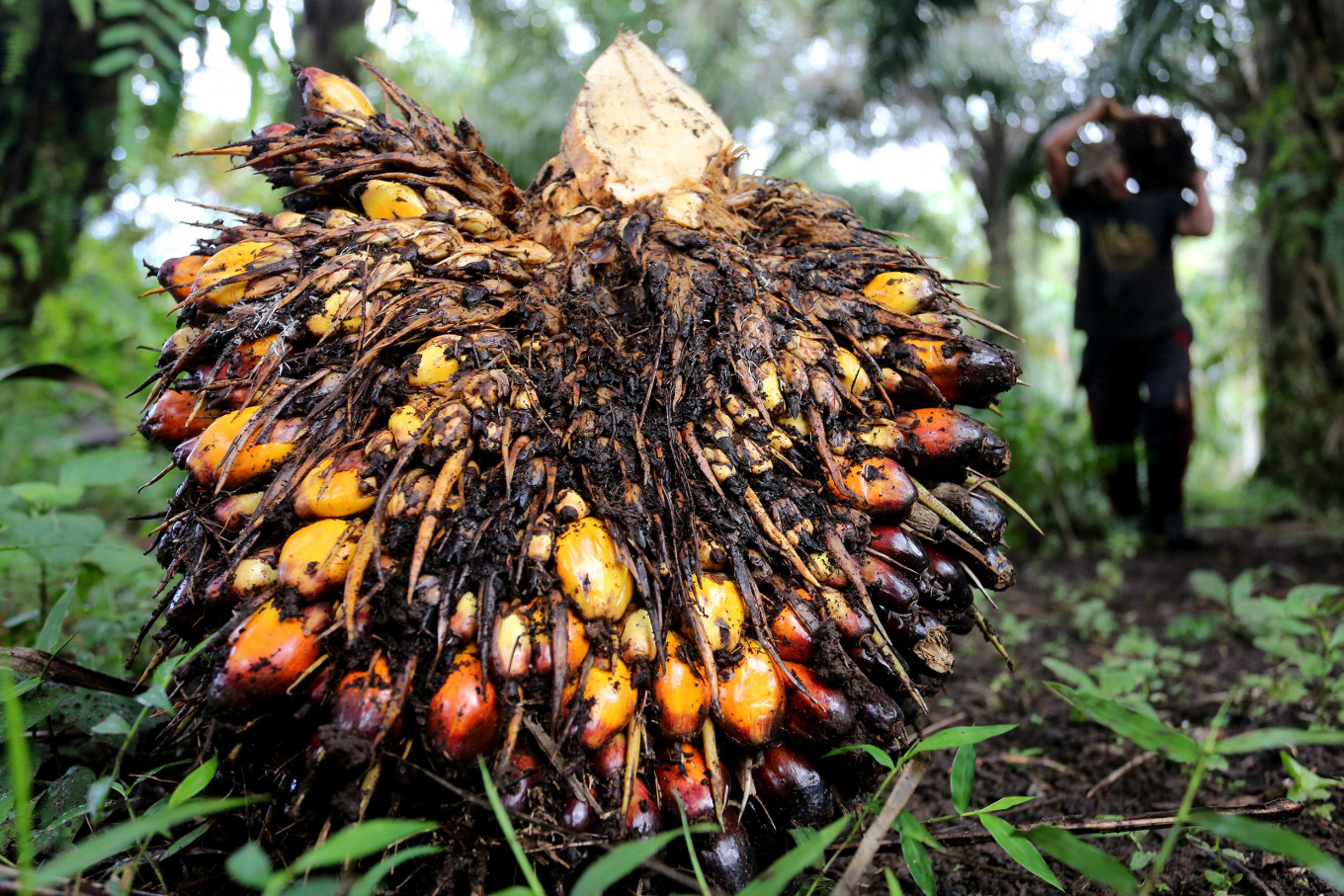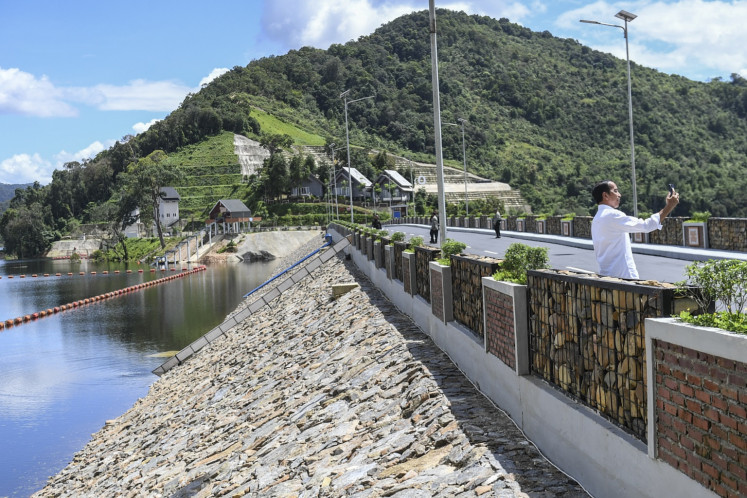Effective climate policies in agriculture, forestry need integrated approach
The Food and Agriculture Organization (FAO) estimates that only 1.7 percent of climate financing reaches local communities and smallholder groups, who contribute the least to climate change and biodiversity loss.
Change Size
 A worker harvests oil palm fruit in Pucok Lueng, West Aceh regency, Aceh, on Feb. 4, 2023. (Antara/Syifa Yulinnas)
A worker harvests oil palm fruit in Pucok Lueng, West Aceh regency, Aceh, on Feb. 4, 2023. (Antara/Syifa Yulinnas)
B
ridging the divide between agriculture and forestry is imperative for climate action. The global and national race is on to steeply reduce emissions over the next six years.
According to the watershed Global Stocktake report, released ahead of the COP28 climate conference in Dubai, we face the daunting task of reducing emissions by 43 percent by 2030 to retain the possibility of limiting warming to 1.5 degrees Celsius by the end of the century, and 27 percent to stabilize at a 2-degree temperature increase.
Since the Paris Agreement was signed in 2015, we have managed only to be on track for a 2 percent reduction in emissions against 2019 baselines. Each subsequent year, we collectively feel the impacts of a hotter, more volatile climate as new records are set for temperature and natural disasters.
Countries have prepared road maps for action based on their Nationally Determined Contributions (NDCs) of varying degrees of ambition. Approximately 22 percent of global greenhouse gas emissions are generated by the land-use sector, which includes agriculture and forestry.
However, this is significantly higher in Southeast Asia, where in countries such as Cambodia, 78 percent of national emissions were derived from the land-use sector in 2016. This is partly due to the conversion of forests to cash crops and is underlain in many places by insecure tenure, which disincentivizes sustainable management by smallholders living on the land.
The targets enshrined in NDCs appear deceptively simple and straightforward: reductions in deforestation, adoption of renewable energy sources and building the adaptive capacity of especially exposed sectors such as agriculture. However, these are all “wicked” problems and interconnected issues that fundamentally must be addressed through an integrated, holistic approach.
The land-use sector has direct, impactful and unique cross-sectoral linkages. By recognizing these more explicitly and formalizing systems supporting landscape approaches, we can fast-track our ability to address climate and a raft of related issues.


















